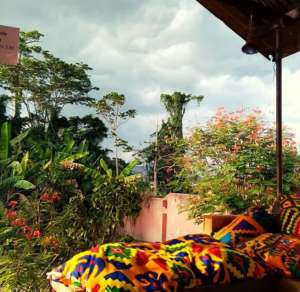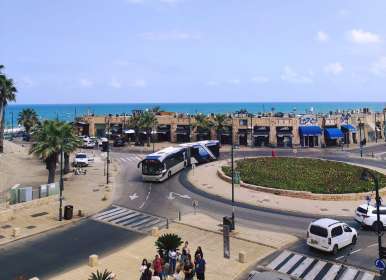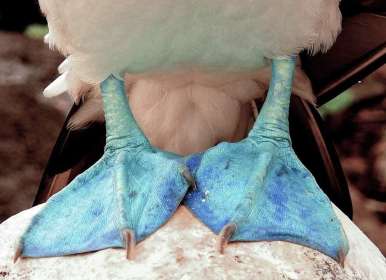Welcome to Ghana, a country on Africa’s west coast known for its rich cultural heritage, diverse ecosystems, and a stable democracy are all features of the country. Ghana was the first country in Sub-Saharan Africa to gain independence from colonial rule, marking a watershed moment in the continent’s history. In the Soninke language, the name “Ghana” means “warrior king,” reflecting the country’s past glories and achievements. Ghana is now a multicultural society with over 100 ethnic groups and a variety of religions, including Christianity and Islam. This article will look at ten fascinating facts about Ghana, ranging from its vibrant cultural traditions to its resource-rich economy and natural wonders.
1. Ghana was the first country in Sub-Saharan Africa to gain independence from colonial rule
Ghana was the first Sub-Saharan African country to gain independence from colonial rule: Ghana was colonized by the British until March 6, 1957, when it gained independence under the leadership of Ghana’s first president, Kwame Nkrumah. Ghana’s independence was a watershed moment in African history, inspiring other African countries to fight for independence from colonial powers. This event heralded the beginning of a new era in Africa, one marked by a spirit of liberty, hope, and dignity.
2. In the Soninke language, the name “Ghana” means “warrior king”
In the Soninke language, the name “Ghana” means “warrior king”: When the country gained independence in 1957, the name “Ghana” was chosen to honor the ancient Ghana Empire, which existed in West Africa from the sixth to the thirteenth centuries. The Ghana Empire was well-known for its strong military and commercial ties with North Africa and the Mediterranean region. The name “Ghana” reflects the country’s rich history and cultural heritage, reminding its people of their past accomplishments and glories.
3. Ghana is well-known for its diverse cultural traditions, which include music, dance, and art.
Ghana is known for its rich cultural traditions, which include music, dance, and art: Ghana is home to a diverse range of ethnic groups, each with their own set of cultural practices and traditions.
Ghanaian music, for example, is known for its lively rhythms, percussions, and vocals ranging from highlife to hiplife, gospel to reggae. Ghanaian dance, on the other hand, is distinguished by its colorful costumes, energetic movements, and symbolic gestures expressing the community’s values and beliefs. Ghanaian art is also known for its use of bright colors to depict themes such as everyday life, nature, and spirituality.
4. Ghana is located on Africa’s west coast
Ghana is situated on the west coast of Africa, bordered by Côte d’Ivoire to the west, Burkina Faso to the north, Togo to the east, and the Atlantic Ocean to the south. Ghana has a tropical climate with temperatures ranging from 21 to 32 degrees Celsius and two rainy seasons that last from April to June and September to November.
5. The country’s ecosystems are diverse, including rainforests, grasslands, and coastal wetlands
The country’s ecosystems are diverse, including rainforests, grasslands, and coastal wetlands: Ghana’s geography is diverse, with a variety of ecosystems supporting a diverse range of flora and fauna. The tropical rainforest in the south, savanna grassland in the north, and coastal wetlands along the Atlantic coast are among the country’s six major vegetation zones. Elephants, antelopes, baboons, monkeys, crocodiles, and numerous bird species can be found in Ghana.
6. Ghana has a number of national parks and reserves, including Kakum and Mole National Parks
Kakum National Park and Mole National Park are two of Ghana’s national parks and reserves. Ghana has a number of protected areas, including national parks, wildlife reserves, and forest reserves, that cover approximately 16% of the country’s land area. Kakum National Park is a tropical rainforest reserve where many bird species, monkeys, and other wildlife can be found. Mole National Park is a savanna reserve with elephants, antelopes, baboons, and a variety of bird species.
7. Ghana is the world’s second-largest producer of cocoa
Ghana is the world’s second-largest cocoa producer: Ghana is one of the world’s largest cocoa producers, trailing only Côte d’Ivoire. Ghana’s main agricultural export, accounting for approximately 25% of total export earnings, is cocoa. Ghanaian cocoa is known for its high quality and distinct flavor, and it is grown on small family farms by smallholder farmers.
8. The country’s oil industry is expanding, and it is also a major exporter of gold and other minerals
Ghana is a resource-rich country with significant deposits of gold, bauxite, manganese, and diamonds. It also has a growing oil industry and is a major exporter of gold and other minerals. Ghana has also emerged as a major player in the oil and gas industry in recent years, with offshore oil fields producing over 200,000 barrels of oil per day. The oil industry has contributed to the country’s economic growth, but there are concerns about its environmental impact and the need to ensure that oil revenues benefit all Ghanaians.
9. Ghana is a democratic country with a multi-party political system
Ghana is a stable democracy with a multi-party political system: Ghana is one of Africa’s few stable democracies, with a multi-party political system and peaceful power transitions from one government to another. Ghana’s political stability can be attributed to the country’s commitment to democracy, rule of law, and a vibrant civil society. Ghana’s democracy is still in its early stages and faces some challenges, such as corruption, inequality, and poverty, but the country has made significant strides in consolidating its democratic institutions.
10. Ghana’s population is diverse, with over 100 ethnic groups and several religions, including Christianity and Islam
Ghana’s population is diverse, with over 100 ethnic groups and several religions, including Christianity and Islam: Ghana is a multicultural country with a wide range of languages, traditions, and religions. There are over 100 ethnic groups in Ghana, each with their own customs and traditions, but all share a common identity as Ghanaians. Christianity is Ghana’s most popular religion, followed by Islam, traditional religions, and other faiths. Despite religious and cultural differences, Ghanaians are known for their hospitality, warmth, and sense of community, making the country a popular tourist destination.
Finally, Ghana is a country with a distinct blend of history, culture, nature, and modernity. Ghana has something for everyone, from the bustling streets of Accra to the tranquil beaches of Cape Coast. Ghana has it all, whether you want to explore the country’s ancient forts and castles, enjoy its vibrant festivals and music, or learn about its rich wildlife and natural resources.














